- Decreased NAD metabolism is associated with various physiological aging processes.
- NAD precursors protect against various aging-associated diseases.
- Boosting NAD metabolism can extend the lifespan of diverse organisms.
Abstract
Nicotinamide adenine dinucleotide (NAD) is an important co-factor involved in numerous physiological processes, including metabolism, post-translational protein modification, and DNA repair. In living organisms, a careful balance between NAD production and degradation serves to regulate NAD levels. Recently, a number of studies have demonstrated that NAD levels decrease with age, and the deterioration of NAD metabolism promotes several aging-associated diseases, including metabolic and neurodegenerative diseases and various cancers. Conversely, the upregulation of NAD metabolism, including dietary supplementation with NAD precursors, has been shown to prevent the decline of NAD and exhibits beneficial effects against aging and aging-associated diseases. In addition, many studies have demonstrated that genetic and/or nutritional activation of NAD metabolism can extend the lifespan of diverse organisms. Collectively, it is clear that NAD metabolism plays important roles in aging and longevity. In this review, we summarize the basic functions of the Enzymes involved in NAD synthesis and degradation, as well as the outcomes of their dysregulation in various aging processes. In addition, a particular focus is given on the role of NAD metabolism in the longevity of various organisms, with a discussion of the remaining obstacles in this research field.
Start your cellular rejuvenation journey today
Our premium range of anti-aging nutraceuticals (supplements that combine Mother Nature with cutting edge science) support healthy aging, while designed to boost NAD+ levels. Manufactured in an ISO9001
certified facility. Packaged and tested in the UK to the highest
standards.
Our
NAD+ boosting supplement named Nicotinamide Mononucleotide, is a
perfect choice for anyone over 25 with a busy lifestyle that would
like to get an extra boost in their daily
routine.
We know how frustrating it is to experience steadily declining
levels of energy, focus, stamina, endurance, and performance.
Unfortunately, this is a reality for most people over 30. But it
doesn’t have to be this way.
Why should I take anti-aging supplements?
Nicotinamide Adenine Dinucleotide or NAD+, a master regulator of metabolism and a molecule essential for the functionality of all human cells, is being dramatically decreased over time.
Repleted levels of NAD+ are correlated with better mitochondrial function, increased cognitive function and energy levels. Better cellular health = better performance.
The peak of NAD+ and hormonal production in humans happens around the age of 25. As a result, the production of hormones such as testosterone, growth hormone, progesterone and melatonin to name a few is being decreased after 25. That’s the reason most adults start experiencing increased fatigue at this age, sleeping less than they did in their early twenties and their sex drive and focus is on a steady decline. Increased levels of NAD+ are correlated with better mitochondrial function, increased focus and energy.
Few NMN, NAD+, NR (Nicotinamide Riboside or Niagen - niacyn) manufacturers
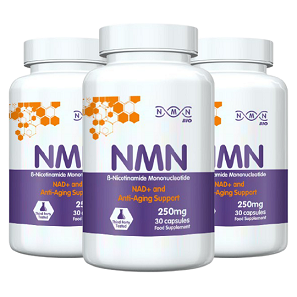
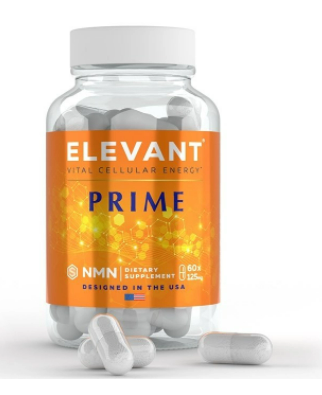
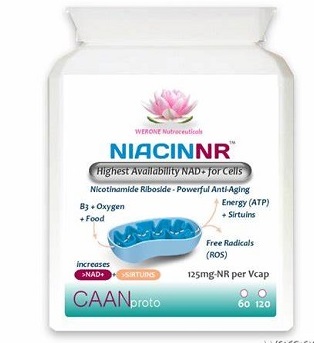
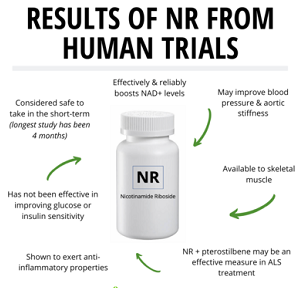
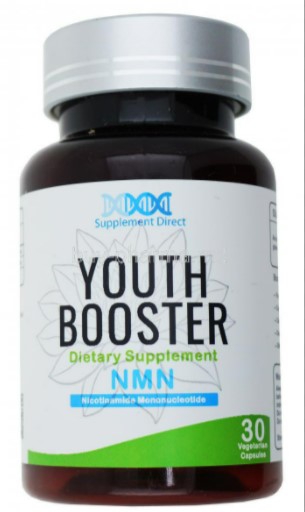
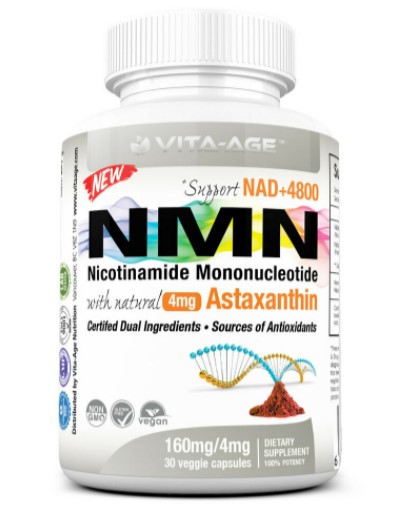
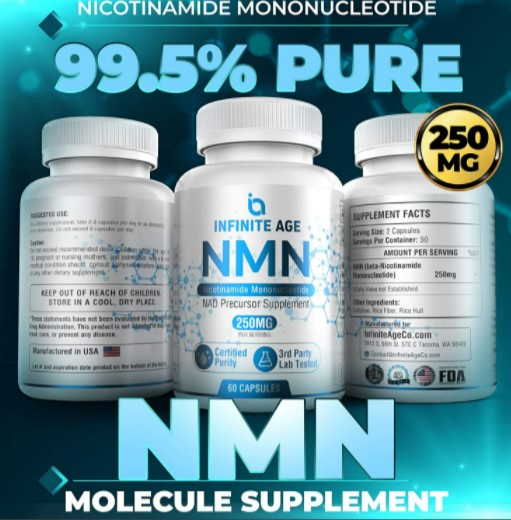
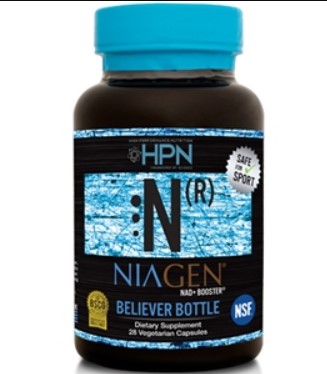
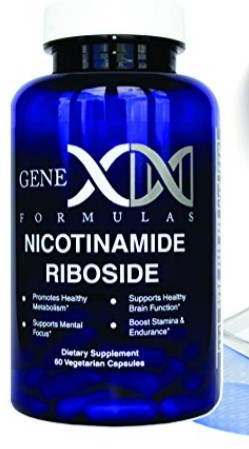
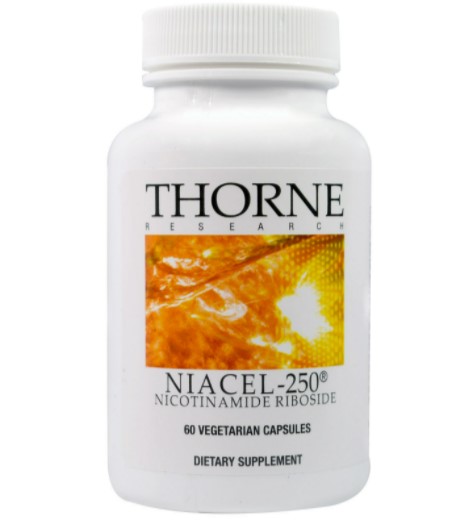
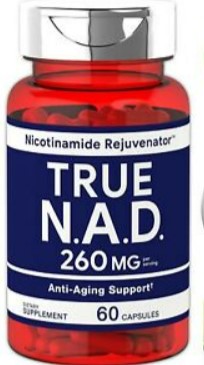
Imagine taking a vitamin for longevity! Not yet, but a Dartmouth discovery that a cousin of niacin prolongs lifespan in yeast brings the
tantalizing possibility a step closer.
The research, reported in the May 4 issue of Cell, shows how a new vitamin extends lifespan in yeast cells, much like calorie restriction
does in animals. It could pave the way for developing supplements to benefit humans.
Radical calorie reduction can extend life. Dieting or fasting mice live longer and lowering the glucose that yeast grow on extends their
lifespan, according to Dr. Charles Brenner, associate professor of genetics and of biochemistry, who led the research.
"If we could do this in humans give people a drug or vitamin that would mimic effects of calorie restriction without having to skip lunch
-- we would be able to provide some of the benefits of calorie restriction, which are pretty striking in model organisms," said Brenner,
also a member of the Norris Cotton Cancer Center at Dartmouth-Hitchcock Medical Center.
Many benefits, explains Brenner, depend on a family of proteins called sirtuins--dubbed anti-aging gene products for the important roles
they play in longevity and energy expenditure, although the precise mechanisms are still being figured out.
His team found that providing a newly discovered vitamin activates the yeast anti-aging gene product Sir2, which resembles sirtuins
found in humans. The new work builds on Brenner's prior discovery of the vitamin, termed NR (nicotinamide riboside), a natural product
found in milk. Like the B3 vitamin, niacin, NR is a precursor to a versatile cellular factor that is vital for all life.
The factor, called NAD, short for nicotinamide adenine dinucleotide, is elevated by calorie restriction. So the researchers set out to
develop an intervention to elevate NAD, using yeast cells, whose genes are easy to manipulate. "It's surprising that no one was be able
to elevate NAD with a small molecule before," Brenner said.
The team discovered two pathways that allow yeast to raise NAD levels with NR, improve their control of gene expression and live longer
in the presence of high glucose. One of the pathways is new; the other was previously identified by Brenner's lab.
At the molecular level, elevating NAD to turn on Sir2 actually enables the yeast to silence genes that are not supposed to be expressed.
In any organism, not all genes are on at once; in yeast, there are sets of genes that Sir2 normally represses.
"We showed that that we could improve Sir2-dependent gene silencing with NR and increase the longevity of yeast grown in high glucose
conditions," Brenner said.
To test for Sir2 gene repression, the investigators found conditions in which wild-type cells can't accomplish normal gene silencing. Then,
when they take up NR through one of the pathways Brenner's team discovered, Sir2 gene silencing is restored, and yeast are
rejuvenated. Yeast cells formerly capable of dividing 13 times, divided over 23 times when given NR.
Deletion of either pathway makes NR only half as effective as it is when both pathways are intact. So yeast cells seem to use both
pathways equally well to lengthen their lifespan. The first NR pathway, described in 2004, consists of a gene common to yeast and
humans. In fact, that gene is activated in damaged neurons in order to allow NR to protect against loss of axons. The second NR pathway
involves three yeast genes, two of which are found in humans.
Granted that the human anti-aging apparatus is more complex, but animal studies indicate potential. Perhaps the best known sirtuin
activator is the red wine compound resveratrol. Overfed mice on high dose resveratrol have healthier livers, better endurance and
possibly longer lifespan. While resveratrol and NR work through different mechanisms to increase sirtuin activity, Brenner said, "the
two compounds could be complementary or synergistic."
More testing remains for NR in humans, but Brenner foresees intriguing possibilities. "As a natural product found in milk, we expect the
compound to be much safer than most drugs, and to be a more specific remedy than most vitamins."
Though aging itself is not a disease, Brenner anticipates applications in conditions associated with aging including neurodegenerative
diseases, metabolic syndrome, and elevating good cholesterol. There are also indications that NR could be a treatment for one type of
Candida infection.
Team members are Peter Belenky and Katrina L. Bogan, Dartmouth graduate students, and Jeffery S. Smith, Julie M. McClure and
Frances G. Racette of the University of Virginia. The research was supported by the National Institutes of Health
Source:
Nicotinamide riboside (NR) and longevity (supercentenarian.com)
NR and NMN: Do These Longevity Supplements Work in Humans?
Could a simple pill be the solution to our aging problems? NAD+ boosters have risen in popularity as laboratory research continues to shed light on their promising effects on longevity and aging. But have we really discovered the fountain of youth? While cell culture and animal research are encouraging, the results of human studies will always trump these laboratory outcomes. And with multiple clinical studies already published or underway, let’s dive into the current research in humans.
Low NAD+ is a hallmark of aging, but NR and NMN supplements may help
To fully understand the science, we must start with the star of the show, nicotinamide adenine dinucleotide or NAD+. NAD+ is a molecule that acts as a coenzyme in many critical processes in our body, including cellular energy production, DNA repair, and sirtuin activity (enzymes involved in aging). Without NAD+ acting as a coenzyme, these processes simply cannot occur and life would not exist. Interestingly, mounting evidence suggests that NAD+ levels decline with age—a change that scientists now consider a hallmark of aging. Lower NAD+ levels are also responsible for many age-related conditions like cardiovascular disease, neurodegenerative diseases, and cancer.
So, in an effort to stave off these age-related changes, can we boost NAD+ levels by taking NAD+ supplements? Not quite. NAD+ in supplemental form has very poor bioavailability, meaning it doesn't have much of an effect when introduced to the body. But, NAD+ has several precursors or intermediates—molecules that transform into NAD+ through enzymatic reactions. Scientists have studied two such intermediates, nicotinamide riboside (NR) and nicotinamide mononucleotide (NMN), more extensively than others, and the research is encouraging. Several studies indicate that supplementing with these precursors can increase NAD+ levels and prolong the lifespan of yeast, worms, and mice. Furthermore, other animal studies show that boosting NAD+ can also improve muscle generation, cardiovascular function, and glucose metabolism. But it's critical to remember that findings in animal studies don't necessarily translate to humans. So let’s examine the clinical research currently published.
Of note, in human studies, research is much farther along for NR supplementation compared to NMN. One reason for this could be due to the way the body converts these intermediates to NAD+. Research suggests that cells can uptake NR directly from the blood, where it is then converted to NMN and then NAD+. However, there are two proposed mechanisms for the uptake of NMN in living organisms. One is that NMN must first convert to NR to enter cells where it is then changed back to NMN and subsequently into NAD+. The other is that NMN may enter cells directly through an unknown transporter, More research is needed to fully understand these mechanisms, especially in humans.
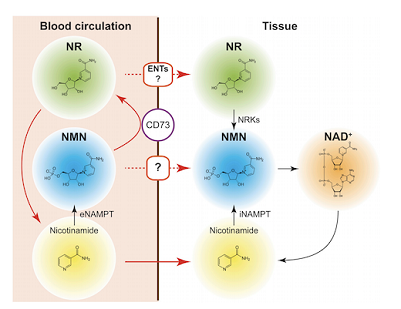
Nicotinamide riboside (NR): Results from human studies
2016: Let the clinical trials begin
Clinical research examining the bioavailability of NR in supplemental form began in 2016. ChromaDex, a company that produces the NR supplement NIAGEN, sponsored the first published study conducted in humans. In this small crossover study, twelve healthy individuals were given three single doses of NR. Each subject completed each dose (100mg, 300mg, and 1,000mg) with a 7-day washout period between each one. The results showed that NR was bioavailable in supplement form and increased NAD+ in a dose-dependent manner—higher doses of NR resulted in more NAD+ present in the blood.
2017: Consistent results continue
More
than a year later, two additional studies on humans were published.
The first
one,
released in November 2017, was a self-funded study by supplement
company Elysium Health, Inc. examining the safety and sustainability
of Basis, its own supplement. Basis is a combination of NR and
pterostilbene (PT), a polyphenol found in blueberries linked to
anti-aging. The randomized, double-blind trial included 120 healthy
subjects between the ages of 60-80 years old. They were assigned to
one of three groups in which each completed eight weeks of daily
supplementation: (1)
a placebo group, (2) a dose of 250 mg NR + 50 mg PT, or (3) a dose
of 500 mg NR + 100mg PT. The
lower-dose group experienced a 40% increase in NAD+, while the
double dose group's levels rose by ~90% . No
adverse side effects were noted, and the researchers concluded that
NR safely and effectively increases NAD+ levels.
A month later,
a much smaller study showed
similar results. Eight subjects took increasing doses of NR for
eight days. Doses started at 250mg of NR on days one and two, then
doubled every two days ending with 2,000mg on days seven and eight.
Their blood was analyzed at baseline on day nine. Researchers
found that NAD+ levels increased in all subjects, ranging from
35-168%.
2018: Disappointing results on metabolic function
In March 2018, a randomized crossover trial examined both the tolerability of NR supplementation in healthy adults and multiple secondary outcomes. ChromaDex also partially funded the study and provided the study pills. The study included 24 lean and healthy men and women between the ages of 55-79 years old. Half of them were placed in Group A, where they received a placebo for six weeks before crossing over to receive 1,000mg of NR capsules for the remaining six weeks. Subjects in Group B received the NR supplementation first, followed by the placebo. NR supplementation raised levels of NAD+ by ~60% compared to the placebo. Furthermore, people with lower blood cellular levels experienced a greater increase in NAD+ levels. The researchers also found that NR generally lowered blood pressure and reduced aortic stiffness, but these findings were not significant. Several other secondary outcomes did not improve, including physical activity, body fat, markers of exercise performance, or glucose and insulin regulation.
In August 2018, a study specifically explored NR’s effect on insulin sensitivity and other metabolic parameters in obese, insulin-resistant men. Forty men, between the ages of 40-70, were randomized into two groups. The experimental group received 2,000mg of NR per day for 12 weeks, while the control group received a placebo. The experimental group experienced no changes in insulin sensitivity and glucose metabolism. No differences in secondary outcomes were observed either, including resting energy expenditure, lipid metabolism, or body composition.
2019: Breakthroughs in ALS research and skeletal muscle
Last year, researchers used Elysium Health’s drug EH301 (essentially a clinical name for Basis) to test its efficacy on the progression of ALS. In this randomized control trial, 32 participants with ALS were given 1200mg of EH301 or a placebo for four months and encouraged to follow a Mediterranean-style diet. The group taking EH301 showed significant improvements in ALS symptoms, pulmonary function, muscular strength, and muscle-to-fat weight ratio. The researchers concluded that EH301 significantly slowed the progression of ALS and improved other health outcomes associated with ALS. Elysium Health, Inc. has announced the initiation of several more clinical trials, including the effects of Basis on fatty liver, muscle metabolism and exercise performance, and in preventing Acute Kidney Illness.
In 2019, another group of researchers evaluated NR’s availability in skeletal muscle in older adults. Over 21 days, twelve 70 to 80-year-old men received a total of 1000mg of NR supplementation (NIAGEN) daily in this randomized control crossover trial. The results showed that NR increased NAD+ in muscle and also exerted anti-inflammatory properties.
The conclusion on NR safety and efficacy in humans
Based on this research, we can conclude that NR supplements are generally safe to take and will most likely increase your NAD+ levels, but the effects of increased NAD+ remain unclear. Furthermore, the study periods were short, so we still don't know the long-term effects of NR supplementation. With that said, many more studies with NR are underway—Chromadex alone claims to have over 100 preclinical trials in the works. For more information on current studies, you can search “nicotinamide ribose” at clinicaltrials.gov, or click here.
Nicotinamide Mononucleotide (NMN) research is still in its infancy
NMN has gained a lot of attention lately, especially after the release of David Sinclair’s book Lifespan. In his book, the Ph.D. and longevity scientist discusses his research examining NMN, particularly in mice. He has been very open about taking NMN, but has also made it clear that he has no opinion on whether anyone else should take the supplement. Similar to NR, the research in animal studies looks promising, but the first study in humans was only published this year. Phase I of this study merely assessed the safety of NMN supplementation, and therefore NAD+ levels were not even measured. Ten healthy Japanese men received a single dose of 100mg, 250mg, and 500mg of NMN on separate occasions. All quantities were tolerated without adverse side effects. The authors concluded that up to 500mg of NMN is safe in healthy men. For phase II, researchers will reportedly examine the efficacy of NMN, as well as appropriate dosage and frequency; however, it remains unclear if this study has started.
Other ongoing human trials (like this one) will examine the safety and effects of NMN in older adults, while this one will investigate NMN’s impact on cardiovascular and metabolic functions. But, similar to NR, research is preliminary and more studies are needed to draw further conclusions.
A summary of all the research
Declining levels of NAD+ are considered a hallmark of aging.
Two NAD+ precursors —NR and NMN— have been more extensively studied than others.
Boosting NAD+ levels through NR and NMN administration extends the life of several organisms, including yeast, worms, and mice, and positively impacts metabolic function in animals.
In humans, NR supplements are considered safe to take in the short-term, and effectively and reliably boost NAD+ levels.
NR may improve blood pressure and aortic stiffness, is available to skeletal muscle, and exerts anti-inflammatory properties.
NR has not been effective in improving glucose or insulin sensitivity.
Elysium's combination of NR + pterostilbene could be a useful measure in ALS treatment.
The first study of NMN in humans was published this year and showed that a single dose of up to 500mg was tolerable.
Further research is needed to fully understand the effects of elevated NAD+ levels via supplementation in humans.
Source:
NR and NMN: Do These Longevity Supplements Work in Humans? (insidetracker.com)
Opinion about Metformin Why Metformin Isn’t the Anti-Aging Miracle You Might Think It Is (daveasprey.com)